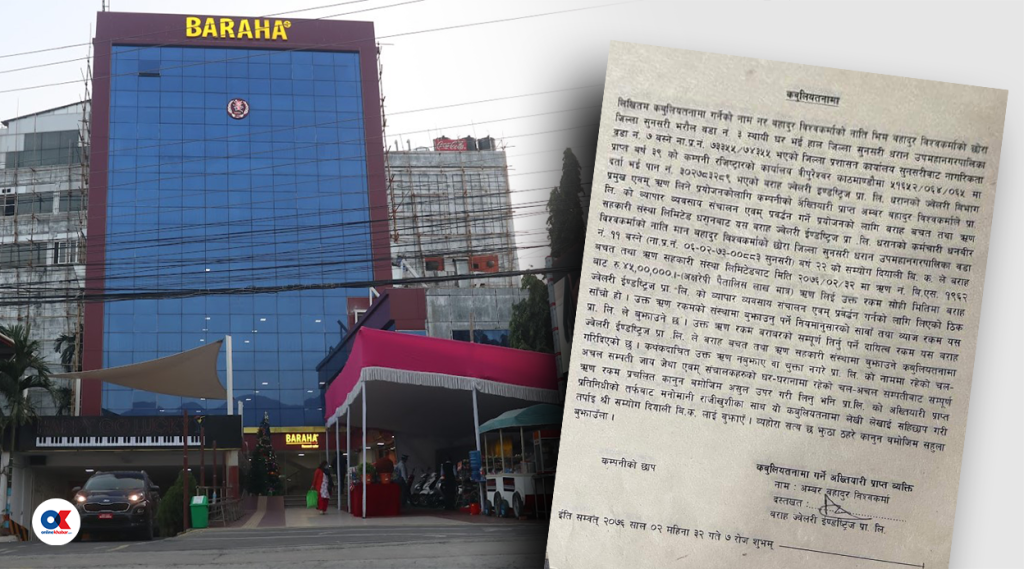
Most often, husbands do not witness or experience the labour pain their wives endure, as they are typically kept apart during the intense and vulnerable moments of childbirth.
However, that traditional practice has changed in the birthing unit of the Paropakar Maternity and Women’s Hospital, Thapathali, Kathmandu. Here, husbands are allowed to stay alongside their wives during labour, witnessing firsthand the process of childbirth.
Making things easy

Let’s hear from 28-year-old Sunita Acharya, who shares her experience: “As I was going through the labour pain, I did not feel alone or insecure because my husband was holding my hand.” She adds, “His presence helped me a lot, giving me the strength and comfort I needed during such a crucial moment.”
Her husband Suraj also had a different experience. He says, “It was hard for me to see my wife going through labour pain. Watching her struggle was very difficult, but it gave me a new perspective.” He adds, “I now realize the immense pain women endure during childbirth. My respect for all mothers has grown even more after witnessing this firsthand.”
During her stay in the maternity room, Suraj supported Sunita in every way he could. He massaged her, served her water, helped her walk, and even fed her food. Reflecting on their experience, both agree that such practices during pregnancy not only strengthen the bond between husband and wife but also provide a sense of security and emotional support for the expecting mother.
“It makes both of us feel stronger and more connected,” they shared. According to Lalita Shrestha, Incharge of the birthing unit, the husband’s presence develops a positive feeling in the woman. “It changes the complexity of labour pain into simplicity,” she says to Onlinekhabar.
The presence of the husband in the maternity room plays a significant role in the privacy and psychological aspects of women. Inside the birthing unit of the Paropakar Maternity and Women’s Hospital, there are eight dedicated rooms designed to allow husbands to stay with their wives throughout the entire process—from the time of admission to discharge.
During the pregnancy due to various changes in their body women become emotionally weak and insecure. At such times the support of the husband plays a great role, says Dr Kirtipal Subedi, a Gynaecologist.
“Feelings such as knowing my husband is with me give extra strength to women,” says Subedi. “The presence of a husband during the pain works better than medicine.” According to the obstetrician, the presence of the husband during childbirth significantly benefits the mother. It not only helps reduce labour pain but also lowers the risk of infection and decreases the rate of ICU admissions by 50 per cent.
The presence of the husband not merely supports the wife emotionally but also makes doctors more responsible,” adds Subedi.
Overcoming labour pain
Lately, there has been a change in the maternity service. The labour rooms are being replaced by birthing units. Nurses, Midwives and skilled obstetricians play vital roles here. Trained midwives directly monitor the patient’s heartbeat, vaginal condition and other complications. If necessary, the doctor manages the problem.
Dr Shree Prasad Adhikari, Director of Paropakar Maternity and Women’s Hospital says that the presence of the husband in the birthing unit increases the chances of a normal delivery. According to obstetrics and gynaecology experts, the traditional practice of accommodating multiple women in labour within the same hall is now considered outdated. This setup compromises privacy and dignity and poses challenges in effectively communicating with families in case of complications
The arrangement of the birthing unit is different. A patient is not moved to the birthing unit until the four chambers of the vagina are dilated. Each room accommodates only one pregnant woman, ensuring privacy and individualized care. In this setup, trained midwives take on the primary responsibility for managing the birthing process.
In labour rooms, multiple women are accommodated together, leading to compromised privacy. Husbands are not allowed to accompany their wives during labour. In cases of complications, the lack of transparency often results in families placing blame on doctors.
“Even though the health workers are managing excessive bleeding and if the uterus has to be removed or the patient taken to the ICU, the husband witnesses the process,” said Dr. Adhikari. He adds, “This way, there is less chance of misconceptions about childbirth complications.”
Satisfying results

The experience a mother takes during childbirth will be remembered throughout her life. According to the doctor, a woman’s confidence increases when she is with her husband during the treatment. But husbands hesitate to stay together during labour pain. Most of the hospitals have been prohibiting the husband when there is labour pain.
Labour pain intensifies after the four chambers of the cervix are opened. Typically, within six hours of the cervix dilating to ten chambers (fully dilated), the baby is born. Experts note that the duration of labour pain tends to be shorter when the husband is present to support the wife.
Dr. Adhikari says, “Years of experience have shown that the presence of the husband has a positive effect on the health of both mother and child.” He further says this concept has been successful in maternity services. Other hospitals have also started adopting the same model. “Watching the pain of my wife closely has made me more responsible towards both mother and child,” says Suraj.
In the birthing unit, health workers monitor the patient more closely monitored. The surgery rate has decreased. “Patient satisfaction has increased,” says Dr Adhikari. Paropakar Maternity and Women’s Hospital plans to replace the labour room with a birthing unit. Currently, 12 to 15 deliveries are taking place daily at the birthing unit.
Only trained midwives and obstetricians are allowed to conduct normal delivery cases, says Dr Adhikari.
“Globally, midwives and skilled obstetricians with proper training have a higher chance of conducting normal deliveries,” says Dr Adhikari, “Even when a doctor manages complications well, it is often the midwife and skilled obstetricians who perform the delivery more effectively.”





















